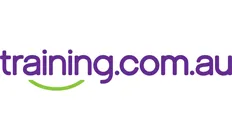So you’ve worked for a digital marketing agency for a few years, you’ve built up your contacts and made yourself known in industry circles. You’re ready to go it alone and start up your own SEO marketing agency. In this guide, we’ll show you what you need to be successful and how to gain the competitive edge.

Register Your Business
Register your company with Lawpath in just 10 minutes.
What is an SEO business?
SEO stands for ‘search engine optimisation’. An SEO agency is a business that helps clients increase their visibility in internet search results. By boosting a web page’s search rankings, an SEO agency can help a business attract more potential customers.
How to start an SEO company
If you’re launching a new business, it’s sometimes hard to know where to start. For a better idea of what you’ll need to do to set up an SEO business, check out this quick step-by-step guide:
- Find your target market. SEO marketing is a very competitive field, so you’ll have a hard time standing out as a generic SEO agency. That’s why it’s a good idea to choose an in-demand niche market on which you can focus your efforts.
- Develop your business plan. Next, decide which services your agency will and won’t offer. For example, while some businesses focus solely on SEO, others offer a full suite of online services including advertising and social media management. You’ll also need to decide which services you will offer – either yourself or via employees – and which will be outsourced to freelancers and other agencies.
- Choose your business structure. Will you be entering into business as a sole trader, starting a partnership or even launching a new company? Each approach has its own pros and cons which we’ll outline further down the page.
- Build your online brand. If you’re going to attract new clients in the world of SEO, your business website will need to rank highly for a number of keywords. Your site should also be professional and informative, offering potential clients and insight into what you can offer.
- Consider your legal requirements. Now it’s time to think about what legal documents you need drawn up. For example, as well as contracts and non-disclosure agreements, you’ll also need to consider important documents like a website privacy policy and terms and conditions. You may want to hire a business lawyer or use an online legal service to help with this.
- Calculate pricing. What is your ideal rate? Will you charge clients hourly, a fixed price per project, or a monthly retainer? Remember to consider your time, skills, business overheads and tax obligations when setting your prices.
- Create an SEO proposal template. This document will help you pitch your services to new clients. It introduces your business and what you do, outlines any key problems with the client’s website and explains how your SEO agency can solve them.
- Build a portfolio. You’ll also need to be able to display a successful body of work to new clients. Testimonials from previous clients and details of the solutions you’ve provided for their business (such as high search rankings) will help you build your customer base.
- Find new clients. Online advertising, applying for projects on freelance marketplaces, tapping into your own personal network – there are several strategies you can use to grow your business. We’ll tell you more about them further down the page.
- Deliver results. The key to growing your SEO business and consolidating your success is looking after your clients. Deliver on your promises and you’ll go a long way towards ensuring that they become repeat customers.
Skills needed to start an SEO business
You don’t have to be an SEO genius to start your own search engine optimisation agency, but you do need to know the basics of digital marketing to successfully sell your services to clients. SEO is a fast-changing business, so it’s a good idea to stay on top of emerging trends and best practices.
Many people pick up the fundamentals of SEO from working in the digital marketing business for a few years. Working alongside talented marketers will teach you the tricks, tools and terminology you need to win over new clients.

Before you begin, it’s good practice to devise a concrete business plan. This will help you to identify your business goals and realise your initial and ongoing expenses.
There are 7 steps to creating a winning business plan as follows:
- Executive summary
- Company description
- Competitive research
- Market research
- Sales plan
- Financial analysis (incl. funding avenues and needs)
- Financial projections
Courses and qualifications
There are no required qualifications to start an SEO business, although qualifications in marketing and writing can be helpful. If you want to increase your knowledge of SEO before you start offering services, you can study a number of courses online on platforms including:
- Udemy. Udemy is an online course platform with thousands of courses on a variety of topics. It offers a range of highly rated SEO courses which can be great for beginners.
- Moz Academy. Moz is a business which offers SEO tools and information, and also runs a series of basic SEO courses in its Academy. Its courses cover SEO basics like keyword research, fundamentals, technical SEO, backlinks and much more.
- Yoast Academy. Yoast provides a popular wordpress plugin to help website owners manage and improve their SEO. It also offers both free and paid courses teaching topics like SEO for beginners, structured data, copywriting, technical SEO and international SEO.
- SEMRush Academy. SEMRush is a popular SEO tool which helps users find keyword ideas and monitor their rankings. It also has a number of free courses on relevant topics like starting an SEO agency, rank tracking, on-page SEO and SEO fundamentals.

Want to learn more?
Access thousands of courses from some of Australia’s leading providers.
Equipment and software needed to start an SEO agency
An SEO agency doesn’t require much equipment to get started. If you’re working from home, you will need:
There are also many different professional SEO tools for analysing and measuring client’s websites. Some of them are available for free but others come at a cost, but it’s worth noting that most paid tools usually offer a free trial period. A few options worth investigating include:
- Google Analytics. This analytics service from Google is an essential tool for monitoring and analysing website traffic.
- Google Search Console. This free tool allows you to monitor and optimise how your site appears in Google search results.
- Moz Pro. Moz Pro is a paid SEO toolkit that includes keyword research, site audits and more.
- SEMRush. SEMRush offers a range of SEO and content marketing products, including several tools to help you improve your site’s SEO performance. A choice of monthly pricing plans is available.
- Ahrefs. You can sign up for an Ahrefs package to take advantage of a site audit, competitor analysis, keywords explorer and more.
- Ubersuggest. This keyword tool helps you generate keyword suggestions to boost site traffic.
- KWFinder. This keyword research and analysis tool helps you find long-tail keywords.
Next, you’ll want to set a good example for your clients by having a top-notch website that is professionally designed and optimised for search engines. This will require getting a domain name and web hosting before you start to build your website. Unless you’re a dab hand at coding and cascading style sheets (CSS), you can use a pre-made theme or get a custom website built by an expert website developer.
For marketing and networking, having a customer relations management software such as CRM is an essential tool in growing your business and retaining clients.
Project management software can also come in handy. These apps make it easy to keep track of the status of your projects and manage how you allocate your time and resources. Jira, Trello and Zoho Projects are a few options you might like to consider.
Most agencies charge by billable hours and use some kind of third-party invoicing software such as FreshBooks to keep track of their accounts.
How to structure your SEO marketing agency
Using your business plan to form your business model will help you to choose which structure works best for your marketing agency. There are three kinds of structures to be aware of, including:
- Sole trader — independent business owner, full liability.
- Partnership — one or more owners, shared liabilities and profits.
- Proprietary company — a registered entity made up of 1-50 stockholders, limited liability.
Registering your company and business name is required in Australia for taxation reasons. On top of that you’ll need to register for an Australian business number (ABN).
Do I need any legal documents written up?
You may need the following documents before starting an SEO agency:
You’ll also need to consider whether you need to create any legal documents for your own website. These may include:
- Privacy policy — outlines what you do with the personal information you collect from customers.
- Cookie policy — this informs users about cookies on your site that collect personal information.
- Click-wrap agreement — an agreement users can click on to accept the terms and conditions of your website.
Many online legal services offer free or cheap documents to help you reduce your legal bill. Forms can be downloaded and customised to fit your business needs.
You can also find affordable lawyers online to help you with your legal requirements. Many online legal services offer free consultations for new clients.
Get access to legal services and documents online
How to find customers
There are many ways you can go with an SEO marketing company. The important thing is to find your niche. Do you have a specialised field or industry experience that will give you the competitive edge? The more you narrow down your market, the less competition you’ll have, the easier it will be to get clients.
Some of the ways you can attract new customers include:
- Ranking on page 1 on Google. If a client searches for SEO in their city and your page is the first result they see, you’ve instantly shown them that you know how to rank highly in web searches.
- Building your online and social media presence. Use your website and social media channels as an online portfolio to showcase your work. Include client testimonials and case studies to add credibility and attract clients.
- Creating partnerships. By partnering with a digital marketing agency that doesn’t offer SEO services, you could create a mutually beneficial relationship where you both refer clients to one another.
- Linking back to your website. Where possible, include links for your SEO services on client websites.
- Building your network. Another method is to gather the contact details of potential clients. You could do this by offering a free resource, such as an SEO report or tool, to people who visit your website.
- Cold-calling businesses. The old-fashioned method of cold-calling (or cold-emailing) businesses near you can help attract more clients. Research businesses that rank poorly in search results and then show them how you can improve their online visibility.
Another affordable way to get your name out there is to post a company profile on popular online marketplaces. These websites are great places to find clients and check out the competition. Options include:
- Airtasker. Create an account and increase your online presence when you advertise your SEO marketing agency services.
- Oneflare. The matchmaker of marketplaces, Oneflare matches clients with professionals.
- Upwork. Upwork is a platform where businesses find freelancers for various jobs or projects.
- Freelancer. Freelancer is a platform where businesses in need of SEO help can post jobs which you can then pursue.
Business directories such as White Pages, TrueLocal and Yelp are also great places for listing your marketing agency. For a fee, you can also find industry-specific directories online.
How much should I charge my customers?
How much you charge your clients depends entirely on the scope and complexity of the project itself. Experience and the size of your agency will also determine your pricing structure. It’s not unusual for agencies to use a combination of payment structures, such as:
- Hourly. Also known as billable hours, this can work well for smaller SEO tasks and ranges from $100 to $150 per hour.
- Fixed. This can be useful for larger projects involving many aspects of SEO. Ranges from $500 to $1000.
- Monthly retainer. Customised to each client’s requirements, often based on a percentage of their marketing budget. Ranges from $500 to $2,000 per month or even beyond.
To determine your pricing structure, do a little market research to see how much your competition charges and what they include.

Ready to get set up with Square?
Get your business moving with payment terminals, QR code ordering, invoices and more.
Frequently asked questions
What’s the best way to land a client?
To get a potential client interested in your company, consider offering them a free website audit or a free keyword analysis upfront. Let them see what you can do and they’ll might agree to work with you.
How do I retain clients?
Retaining clients is an important part of your business and is vital to developing repeat business. It will also help to build your reputation and client referrals.
Three key points to remember for client retention are communication, reporting and results. Keeping in contact with clients and showing the value of your work through reporting and results-driven data will keep them interested and invested in what your company has to offer.






















